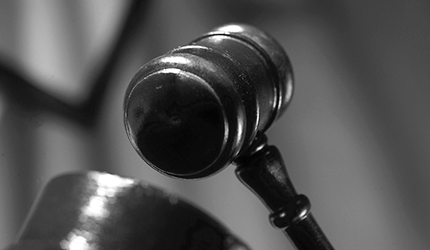
Teva, GSK Try to Apply Pom Wonderful Ruling to False-Ad Lawsuit
Teva is pointing to the Supreme Court’s recent ruling in a soft drink labeling case to claim immunity from GlaxoSmithKline’s lawsuit alleging the Israeli firm falsely advertised its generic antidepressant budeprion XL as bioequivalent to GSK’s Wellbutrin XL.
In a June 19 letter to a federal district judge, Teva referred to the Supreme Court’s June 12 decision in Pom Wonderful v. Coca Cola, in which the high court found that Pom Wonderful could sue Coca Cola for claiming one of Coke’s products consisted primarily of pomegranate and blueberry juice when it did not. The high court pushed that case back to a lower court.
In its Pom ruling, the Supreme Court specifically noted the distinction between food labeling and drug labeling, noting that the FDA is required by law to sign off on labeling before drug products can go to market and suggesting the FDA approval provides protection against false advertising claims.
Teva highlighted that point in GSK’s lawsuit, claiming Teva cost the brand manufacturer hundreds of millions of dollars in lost revenue by offering budeprion XL as a cheaper, identical alternative to Wellbutrin XL, even though the generic was later found to not be entirely bioequivalent and was removed from store shelves in 2012 for that reason. That suit was filed in the U.S. District Court of the District of Eastern Pennsylvania.
The generic firm argues that because the FDA had already signed off on budeprion XL as bioequivalent to Wellbutrin XL, then it cannot be held liable for making that claim in its advertising. In arguing otherwise, GSK is undermining a government agency’s authority, something the Pom decision specifically warned lower courts to steer clear of, Teva said.
When Teva’s original generic budeprion was approved, testing was only performed on the 150 mg dose, and its results were later extrapolated for a finding of bioequivalence in the 300 mg version. The generic version didn’t function as well because it used a different mechanism that released the active ingredient much faster than the branded version, GSK said in its complaint.
In a June 24 rebuttal, GSK blasted the generics maker’s characterization that GSK’s claim is based on the fact that the FDA’s determination of bioequivalence was false. GSK said it does not rely on arguments that the FDA’s initial finding was false, “but instead on the straightforward fact that budeprion XL was not bioequivalent, as the FDA itself ultimately determined.” — Bryan Koenig
Originally appeared in Drug Industry Daily, the pharmaceutical industry’s number one source for regulatory news and information. Click here for more information.
